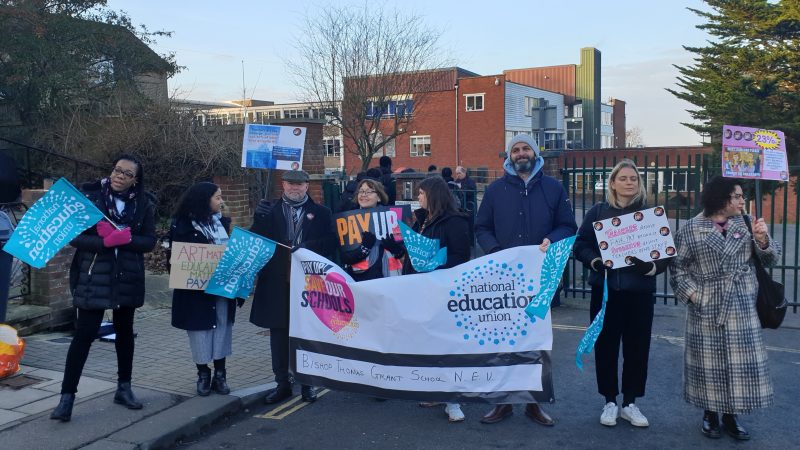Government accused of 'stoking mistrust’ as bitter dispute continues

Teachers are on the picket lines again this Wednesday in their sixth national strike since February when the dispute over pay and conditions kicked off.
Frustration and anxiety is growing among teachers as unions demand the Education Secretary ‘do her job’ and publish recommendations from the pay review body which it’s hoped will re-open negotiations.
Union leaders issued a joint statement on Tuesday which called on Gillian Keegan to stop delaying the publication of the School Teachers’ Review Body (STRB) pay recommendations.
It was leaked that the recommendations suggest a 6.5% pay increase for teachers, however the government has yet to make them public, while the Prime Minister has suggested the government won’t necessary heed by the STRB recommendations.
This is despite the Education Secretary previously refusing to re-enter negotiations on the grounds that she was waiting for the publication of the pay recommendations.
The delays have exacerbated mistrust and caused ‘anxiety across all schools’, the NEU said, as the union slammed the government for failing to show they valued the profession, over their handling of the dispute.
In a joint statement, leaders of the four teachers’ unions and the TUC said: “Further delay is leading to continuing anxiety across all schools and frustrating head teachers and school leaders’ ability to plan and manage already difficult budgets for the forthcoming school year.
“Government briefings to the press about blocking public sector pay rises, while refusing to properly negotiate with education unions, risk worsening industrial relations and dragging out the current dispute.”
Unions said the ball is firmly in the government’s court to end the strikes as they said there was no god reason for any delay in the STRB pay recommendations now. Leaders added that it was ‘deeply worrying’ that the government could abandon the pay review body process.
Teachers’ unions all voted overwhelmingly to reject the government’s last offer of a 4.5% pay increase and a one-off £1,000 payment.
Members from three other teachers’ unions, ASCL, NASUWT and NAHT, who also represent head teachers, are currently balloting their members for strike action. This could see the biggest strikes in a decade take place in Autumn as unions take a united front.
Real pay for teachers has gone down by 23% since 2010.
This, combined with devastating cuts to school budgets, stress and growing workloads due to recruitment and retention troubles have led to a crisis in teaching.
This year alone, the government missed its target for recruitment of new secondary school teachers by 41% and by 7% for primary school teachers.
Last year, 40,000 teachers left the profession, with the number of job vacancies in England’s schools are its highest since 2004.
Whilst the number of children in class sizes over 30 is an its biggest ever and the number of head teachers who left before retirement is the highest it has ever been, according to the government’s own statistics.
In a statement yesterday, Geoff Barton, general gecretary of the ASCL union said: “This week’s strikes are a problem of the government’s making through its neglect of education and refusal to resume formal negotiations with unions.
“Unless the government changes its approach then there will likely be further strikes in the autumn term.”
Over 30,000 teachers will also be taking strike action up and down the country on the Friday, 7 July.
Hannah Davenport is trade union reporter at Left Foot Forward
Left Foot Forward’s trade union reporting is supported by the Barry Amiel and Norman Melburn Trust

Left Foot Forward doesn't have the backing of big business or billionaires. We rely on the kind and generous support of ordinary people like you.
You can support hard-hitting journalism that holds the right to account, provides a forum for debate among progressives, and covers the stories the rest of the media ignore. Donate today.



